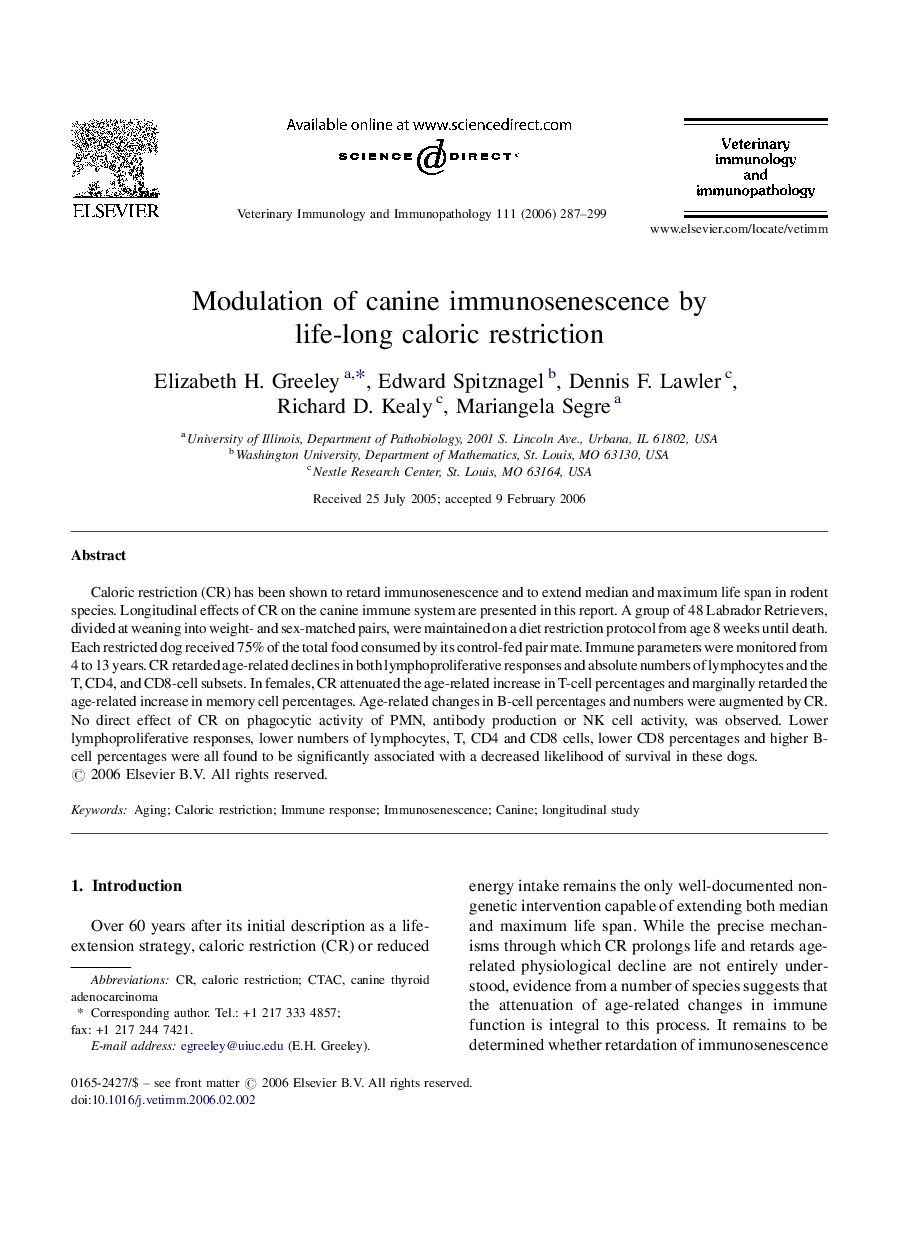| Article ID | Journal | Published Year | Pages | File Type |
|---|---|---|---|---|
| 2463492 | Veterinary Immunology and Immunopathology | 2006 | 13 Pages |
Caloric restriction (CR) has been shown to retard immunosenescence and to extend median and maximum life span in rodent species. Longitudinal effects of CR on the canine immune system are presented in this report. A group of 48 Labrador Retrievers, divided at weaning into weight- and sex-matched pairs, were maintained on a diet restriction protocol from age 8 weeks until death. Each restricted dog received 75% of the total food consumed by its control-fed pair mate. Immune parameters were monitored from 4 to 13 years. CR retarded age-related declines in both lymphoproliferative responses and absolute numbers of lymphocytes and the T, CD4, and CD8-cell subsets. In females, CR attenuated the age-related increase in T-cell percentages and marginally retarded the age-related increase in memory cell percentages. Age-related changes in B-cell percentages and numbers were augmented by CR. No direct effect of CR on phagocytic activity of PMN, antibody production or NK cell activity, was observed. Lower lymphoproliferative responses, lower numbers of lymphocytes, T, CD4 and CD8 cells, lower CD8 percentages and higher B-cell percentages were all found to be significantly associated with a decreased likelihood of survival in these dogs.
